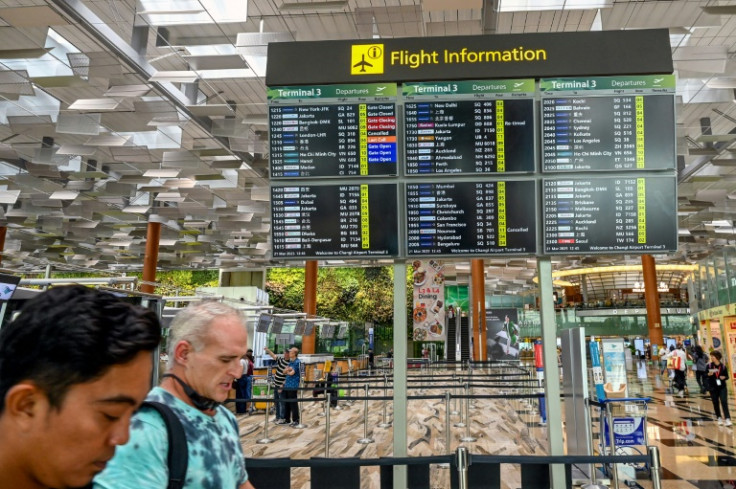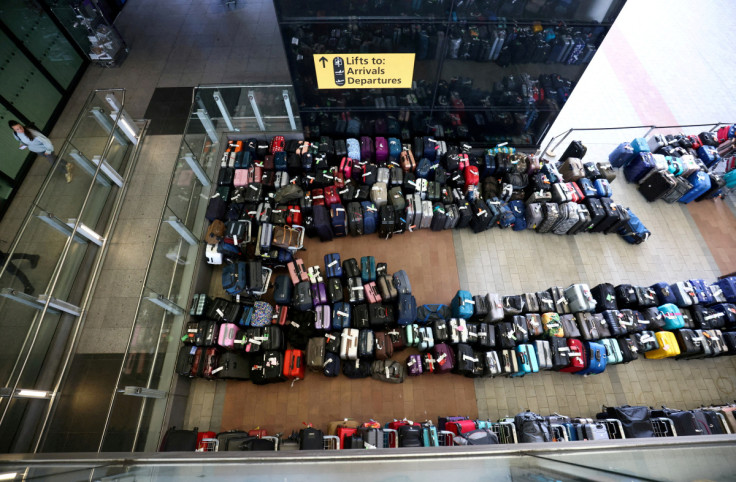Cyberattack Chaos at Heathrow: Major Delays Spark Security Questions
Check-in and boarding systems fail, forcing manual operations at major airports

A major cyberattack has caused widespread disruption at some of Europe's busiest airports, forcing staff to abandon automated systems and process passengers manually. Heathrow, Brussels and Berlin were among the worst affected, with travellers facing long queues, missed connections and cancelled flights.
Heathrow Hit Hard
At London Heathrow, hundreds of passengers reported waiting in line for hours after check-in and baggage systems went offline on Friday evening. Staff resorted to manually tagging luggage and issuing boarding passes by phone as airlines struggled to keep flights moving.
Lucy Spencer, who was travelling with Malaysia Airlines, said she had queued for more than two hours in Terminal 4 only to find her mobile boarding pass invalid at the gate. 'They've now sent us back to check-in,' she told the BBC, describing scenes of 'hundreds of people' waiting with little information.
Another passenger, Monazza Aslam, said she had been stuck on the tarmac for over an hour with her elderly parents and had already missed a connecting flight in Doha. 'We are hungry and tired,' she said, having arrived at Heathrow at 5am.
While many travellers voiced frustration, some noted that staff were doing their best to ease the chaos.
Passenger Luke Agger-Joynes said Terminal 3 queues were 'much larger than normal' but moving faster than expected, with airline staff pulling passengers for imminent flights to prevent further delays.
By Saturday, Heathrow confirmed that additional staff had been deployed to manage bottlenecks and advised travellers not to arrive more than three hours before long-haul departures or two hours before domestic services.

A Europe-Wide Problem
The outage was not limited to the UK. Brussels Airport said manual check-in procedures had created 'large crowds' across its terminals and warned of a 'major impact' on flight schedules. Belgian officials confirmed at least ten cancellations and more than a dozen long delays.
Berlin's Brandenburg Airport also reported extended waiting times, while Eurocontrol, Europe's aviation safety authority, instructed airlines to cancel half of their flights into and out of Brussels between 04:00 GMT Saturday and 02:00 Sunday to contain the disruption.
By late Saturday morning, flight tracking site FlightAware reported more than 140 delays at Heathrow, more than 100 at Brussels and 62 at Berlin.
Collins Aerospace Confirms Breach
The cyberattack targeted Muse, a passenger processing system run by Collins Aerospace, a subsidiary of US aviation giant RTX. The software allows multiple airlines to share check-in desks and boarding gates.
RTX confirmed a 'cyber-related disruption' at a number of airports, stressing that the impact was confined to check-in and baggage systems and could be mitigated by switching to manual procedures. Engineers were deployed to restore systems as quickly as possible.
The UK's National Cyber Security Centre (NCSC) said it was working closely with Heathrow, Collins Aerospace and European partners to investigate. Officials added there was no immediate evidence of passenger data being compromised.
Collins Aerospace, which provides check-in and boarding systems for several airlines across multiple airports globally, is experiencing a technical issue that may cause delays for departing passengers.
— Heathrow Airport (@HeathrowAirport) September 20, 2025
While the provider works to resolve the problem quickly, we advise… pic.twitter.com/f68e9CbIlu
Ripple Effects and Wider Concerns
The scale of the disruption drew comparisons with the global IT crash in September 2024, when a faulty software update from cybersecurity firm CrowdStrike caused mass cancellations in the United States.
Travel journalist Simon Calder told the BBC that Heathrow, as Europe's busiest hub, was particularly vulnerable. 'Any disruption is potentially serious,' he said. 'Departure control is a really complex business. These things are interconnected – so a problem in Brussels or Berlin means planes, passengers and pilots are suddenly not where they are meant to be. Things can get worse before they get better.'
Transport Secretary Heidi Alexander said she was monitoring the situation and receiving regular updates.
A Wake-Up Call for Aviation
Industry analysts say the incident highlights how reliant aviation has become on shared digital infrastructure, with a single cyber breach capable of paralysing airports across borders. Calls are growing for tighter cybersecurity standards and greater redundancy in critical systems.
As investigators probe the origins of the attack, travellers continue to face knock-on disruption across Europe. For many, the experience has underscored just how fragile air travel can be in an age where one compromised system can ground flights from London to Berlin.
© Copyright IBTimes 2025. All rights reserved.




















